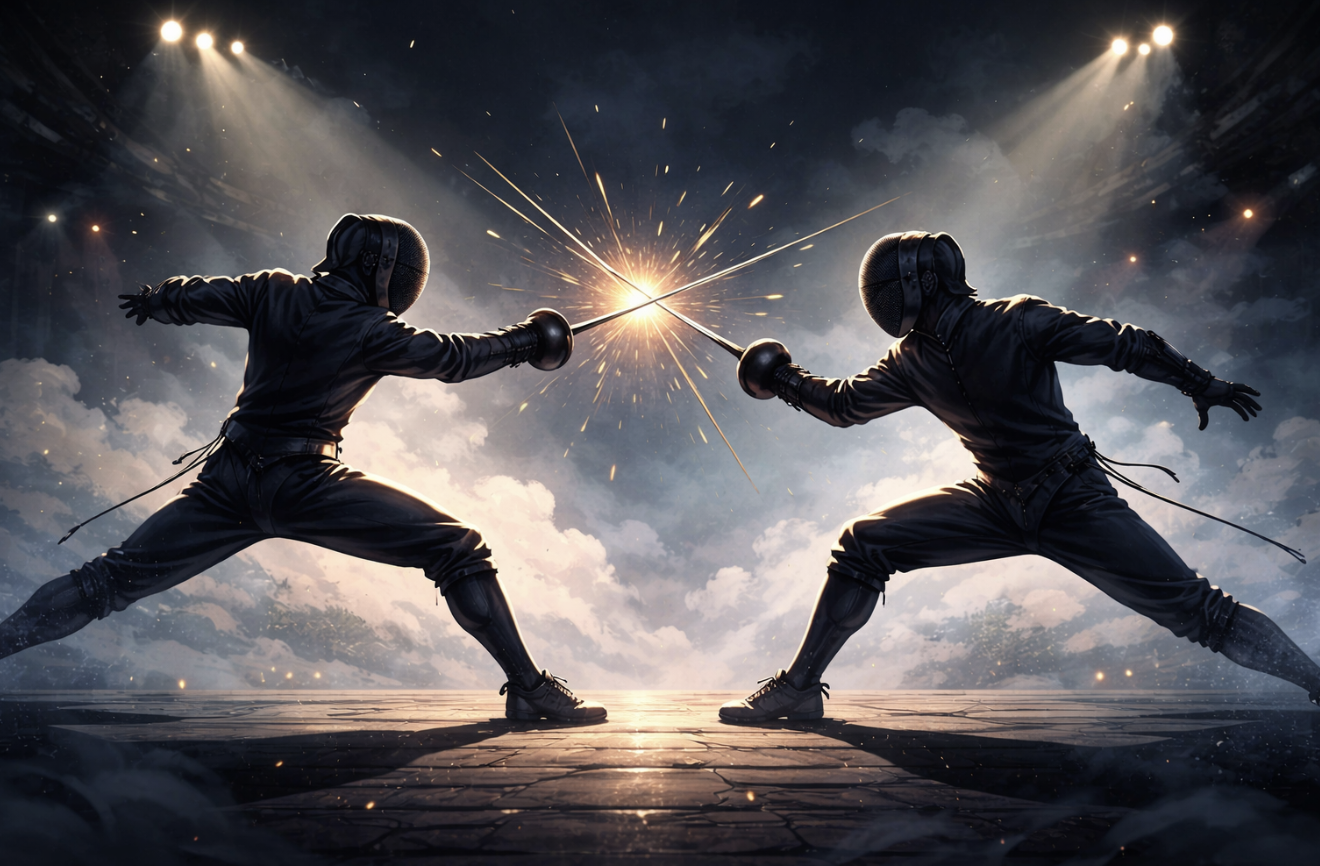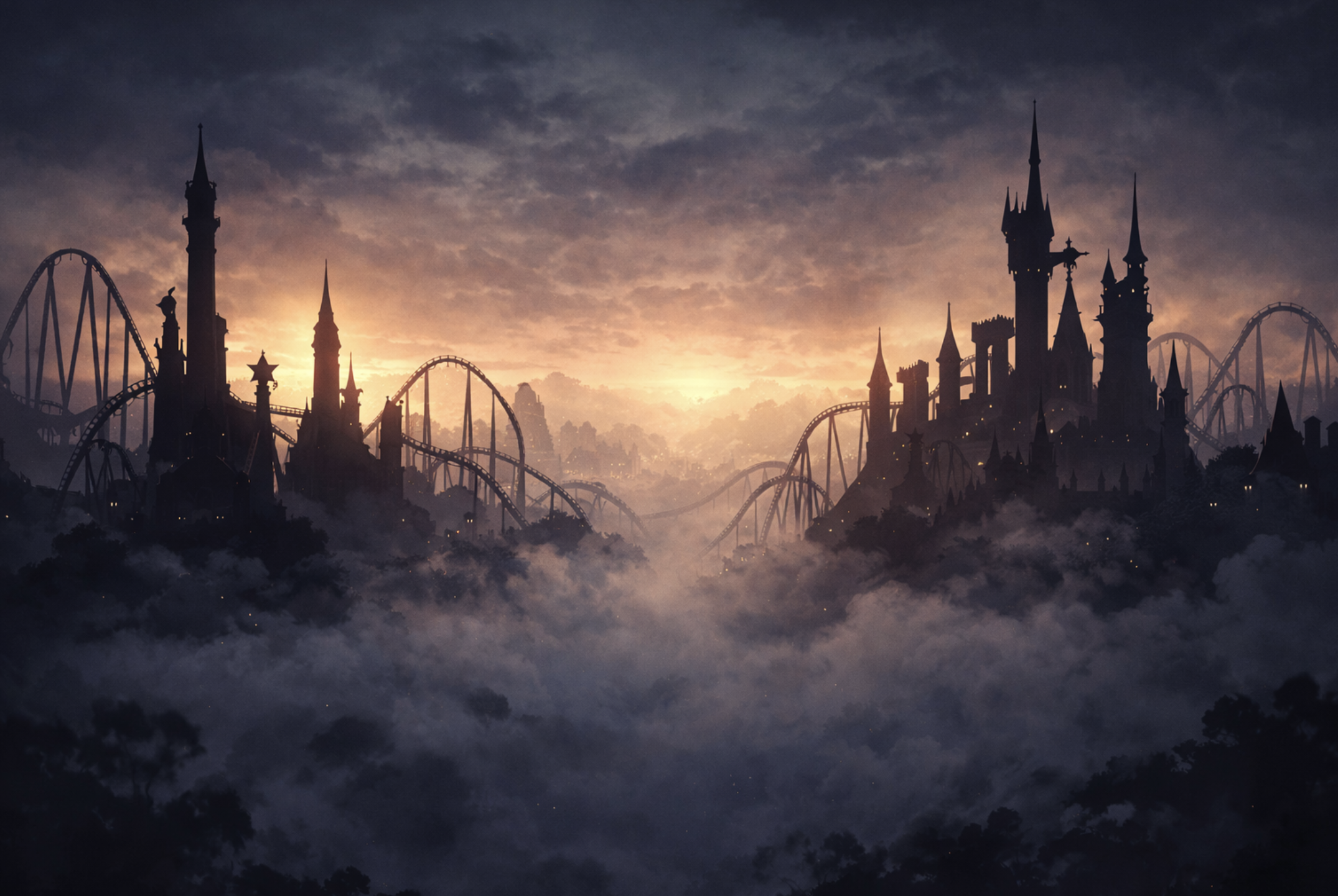Epic Universe Has Arrived: Comcast’s Bold Gamble to Dethrone Disney
Just have to start this post out by saying that I, personally, love Disney. I’m not a crazy Disney-adult (sorry out there, I mean no disrespect), but the one time I went to Disney as an adult, I really had a blast even though I wished the lines were shorter. In the glittering state of Florida, where the palm trees sway beside roller coasters and dreams are molded in plastic and steel, a new titan has taken its first steps onto the stage.
It’s not another Disney castle or a new streaming app. No, it’s a $7 billion gamble with five worlds, 750 acres, and a corporate mission hidden behind enchanted gates.
Welcome to Epic Universe, Comcast’s loud, kinetic, and spell-casting answer to Disney’s long reign over America’s theme park throne. But what does it all mean? Why now and why here?
This isn’t just a new park, it’s a declaration of war on Disney as the giants battle for our money and time.
The Streaming War Spills Into the Real World
For the past few years, we’ve watched Comcast (NBCUniversal) and Disney battle it out in our living rooms.
One gave us The Office, Peacock, and Fast & Furious, and the other gave us a kingdom of princesses, Jedis, and superheroes. Their streaming services have fought for our attention in the silent war of clicks and binge sessions.
But now, Comcast is leaving the streaming battlefield and stepping into the sun-drenched world of churros and queue lines, where Disney has dominated for over half a century.
Epic Universe is a power play in real life, more than just a new theme park.
$7 billion of belief is a pretty absurd number if you think about it. That’s one of the most expensive theme park projects in U.S. history, rivaling even Disney’s most ambitious endeavors.
What do you get for that price tag you might be wondering (yes, I can understand the curiosity, I, myself am planning my future fictional theme park in my head as I write this…definitely wine themed…). Well yes, I’m glad you were wondering. 750 acres of land and 5 immersive “worlds” are coming to life from this staggering number. Beloved intellectual properties like: Super Nintendo World, How to Train Your Dragon, Universal Monsters, Harry Potter’s Ministry of Magic (you just know Harry needed to get in on the action), and original content unique to the park are all included in that price tag.
This isn’t a quick expansion either, this is Comcast building an empire, an empire that can rival, and maybe even outshine, the House of Mouse.
My first thought was: why would Comcast do this in 2025, when theme park attendance has been shaky and streaming is still the entertainment darling? I mean, I know restaurants have been having issues with building anything additional because the price of construction is just outrageous.
I suppose though, like most things in life, timing is everything, and Comcast knows exactly what it’s doing.
1. Disney Is Wounded
Disney’s been under fire lately even if you didn’t realize that. It’s got streaming losses, leadership changes, and maybe some overly frustrated shareholders. A culture war has been bubbling under the surface of every box office release. Pandering frustrations are at an all time high. Don’t even get me started on the Snow White incident (I laughed and probably binge-watched about an hour worth of memes but would never even watch that movie). Now, don’t get me wrong, I’d still approve if Disney came and asked my husband, Zakary Edington, to star in any of their shows.
The parks division, once Disney’s golden goose, is facing backlash for high prices, reservation systems, and a perceived loss of magic. I read the other day it’s now cheaper to fly to the Disney in Japan and spend a week there than go to the Florida property. Is that true?…not sure, but it felt about accurate.
Epic Universe steps in like a knight in shining armor with lower expectations, fresh ideas, and no pressure to uphold 70 years of nostalgia.
2. Florida Is the Battlefield
While Disney grapples with political battles in Florida (especially around Disney World’s Reedy Creek governance and tax status), Comcast is silently building something that doesn’t carry cultural baggage.
No politics and no controversies from the past are dirtying anything about this future. Nothing but world-class rides, modern tech, and clean slates.
In Orlando, the mouse may still wear the crown, but Universal is building a fortress just down the road.
Building Worlds, Not Just Rides
Unlike the older model of theme parks (where rides were bolted on to existing lands) Epic Universe is designed from the ground up for immersion.
Each world has its own entryway, ambiance, and atmosphere. No hopping from Hogwarts to Springfield in ten steps. Here, you commit to the world. The goal is to create a transportive experience that doesn’t feel like a patchwork of IPs but like five self-contained countries within a nation of wonder.
This mirrors the most successful trend in modern entertainment: worldbuilding. From Marvel to Game of Thrones to Zelda…audiences now crave universes they can live inside, not just watch. Epic Universe is also designed with next-gen technology in mind. Facial recognition for entry and purchases are a thing, with tech taking the front seat of entering the parks (don’t do anything bad that also means!). Augmented reality experiences tied to your phone or wearable are rumored to be a thing. Real-time virtual queues help with those god-awful lines I complained about more than once last time I was at Disney (last January). Interactive environments that remember your choices is also promised in this technologically savvy park.
It’s a smart park for a smart generation, one that wants adventure without waiting three hours in the Florida heat. Unlike older Disney parks (which must retrofit these technologies), Epic Universe bakes them in from the blueprint.
This makes it more agile, more adaptive…and frankly, more futureproof.
Also, don’t overlook what might be Epic Universe’s biggest draw: Super Nintendo World. This isn’t a bonus feature in my opinion, it’s a golden star. Kids, millennials, and adults who grew up blowing into cartridges are all drawn to Nintendo’s colorful legacy. My sister still has her Nintendo with bite marks in it she gave to her son (yeah, she was a sore-loser).
Think of how powerful that is for just a second. While Disney has Marvel and Star Wars, they don’t have Mario. In many ways, Mario is even more culturally universal. He doesn’t need translation or court controversy. He’s fun, familiar, and instantly nostalgic.
The interactive Mario Kart ride, wearable Power-Up Bands, and gamified lands are already a smash hit in Japan and California. Now, with even more space and budget in Orlando, this might become the most popular land in the country.
Owning Both Screens and Streets
Comcast isn’t abandoning streaming either, they’re doubling down on a hybrid strategy.
Think of it like this: Disney+ made Disney more digital, Epic Universe makes Comcast more physical.
Instead of betting everything on streaming profits (which remain elusive at best), Comcast is diversifying. Theme parks are profitable, tangible, and hard to disrupt. They can’t be pirated or replaced by AI. They’re experiences you have to live to understand, and experiences are really what we’re all craving in a post COVID-19 world.
After the pandemic reminded us all how much we missed those real-life escapes, Comcast is betting we’ll keep coming back.
This is all well and good, but the truth of the matter is that no one can fully dethrone Disney. Disney has built an emotional empire…one tied to generations of childhoods, holidays, and life milestones. I’m definitely not saying they can’t be challenged though, and Epic Universe is that challenge.
Disney hasn’t built a new theme park in the U.S. since 2001 (California Adventure), Comcast just built one in 2025.
And they didn’t go small, they went epic.
The Magic Has Changed
What’s becoming clear is this: magic is no longer one-size-fits-all. For some, it’s still the princesses and parades, and for others, it’s fire-breathing dragons, augmented reality, and a chance to throw green shells at your brother in a virtual race. I can’t wait to go with my nephews, honestly.
Comcast saw the shift and they didn’t wait. They built the new dream, right in Disney’s shadow. The theme park industry has officially entered a new era where IP-driven design is no longer optional, it’s essential and technology isn’t a gimmick, it’s the glue that holds it all together. Guest experience has just evolved from “stand in line” to “interact with the real world.
Epic Universe isn’t just another park, it’s a case study in how entertainment companies can build loyalty through immersion, not just content. For Comcast, this isn’t the end of the road, it’s the opening scene.
If Epic Universe performs well, you can bet they’ll build again, bigger, smarter, and maybe even internationally.
Related Reads
Disney Is Building a New Kingdom, In the Middle of the Desert
When Luxury Starts to Burn: Moët Hennessy’s Crisis and the Future of Fine Wine
The Future of Shopping? How Intelligent Commerce Will Change Everything
Meta’s New AI Lab Is Pursuing “Superintelligence,” But at What Cost?
France Plans Robot Army by 2040: The Future of War or the End of Humanity?
When the Internet Lost Its Way: The 18 Minutes That Haunted Cyberspace
Digital DNA: Are We Building Online Clones of Ourselves Without Realizing It?
The Fiber-Optic Forest: How Trees Might Power the Next Energy Grid
Ready to explore Orlando’s theme park wars yourself? You’ll need this:
Cooling Towel Set – For Surviving Florida Heat at Theme Parks and this Cross Body Backpack for stuffing them into.
Epic Universe isn’t a side project, it’s a shot fired across Cinderella’s castle moat, and a reminder that the entertainment world is evolving, and so are the giants who shape it.
Comcast has made its move, and it dropped the mic along with it. Now it’s our turn to walk through the gates and see what kind of magic this new kingdom holds. I’ve got my trip booked for 2027, so you can bet I’ll have more to say about it by then.

